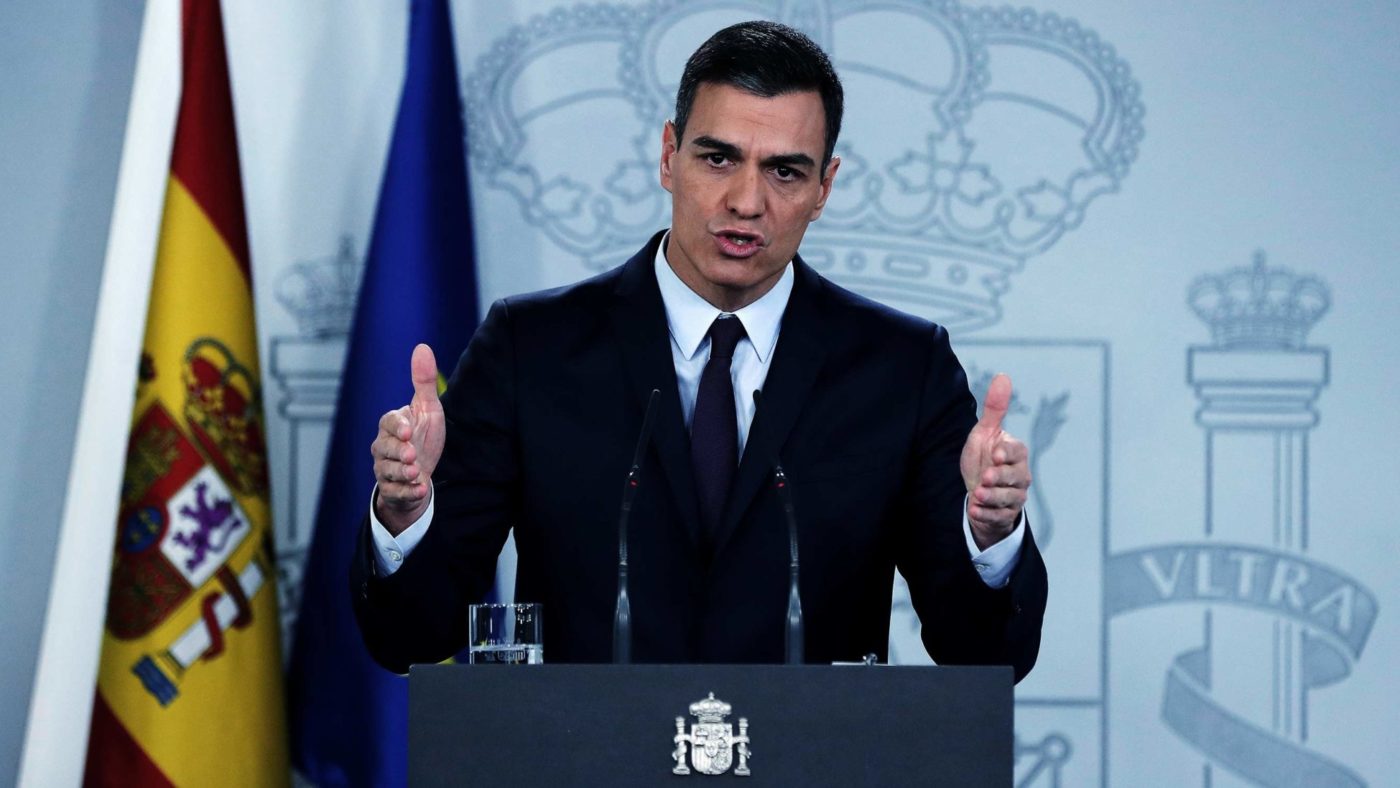Eight months. That’s how much time has passed since Spain’s prime minister Pedro Sánchez unseated Mariano Rajoy in a no-confidence vote in June last year. Unfortunately for Sanchez, it is also the duration of his first term in office. This morning, Sánchez had to make the difficult decision of calling a snap elections for April 28 after Congress rejected his budget proposal two days ago. Although he had made clear from day one that he had no intention of ending his term before 2020, the lack of parliamentary support to pass the budget has forced him to dissolve parliament and go to the country.
Despite being in office for only eight months, Sánchez’s government has introduced several substantial legislative changes, most of them via executive orders. Apart from the plan to exhume Francisco Franco’s remains and transfer them out of the monumental basilica where he is now buried (this has not yet happened due to the opposition of Franco’s descendants), the headline measure of Sánchez’s reign has been to raise the national minimum wage by 22.3 percent for this year.
This is not a minor issue. The Bank of Spain has warned that such an increase will lead to the loss of 125,000 jobs, a pretty eyewatering numbers, especially bearing in mind that the country’s unemployment rate is still over 14 per cent (some 10 per cent higher than in the UK, by way of comparison).
On the plus side, Sánchez’s government has not had time to repeal the labour market reforms carried out by the Rajoy government in 2012, in spite of Sanchez’s promise to scrap them when he came to office. Those measures have been key to the impressive recovery in the job market that Spain has experienced since 2014. The statistics are pretty remarkable – in the first quarter of 2014 the unemployment rate was 25.93 percent; in the last quarter of 2018 it had fallen to 14.45, still high by Western European standards, but a marked improvement nonetheless.
In any case, the inability of Sánchez’s government to have its budget proposal approved by Congress represents good news for the Spanish economy, which was showing signs of fatigue throughout 2018. Sánchez’s budget was a threat to Spain’s economic growth: it increased the deficit considerably, raised income and corporate taxes and introduced two new levies aimed at taxing tech giants and financial transactions.
Nonetheless, the fact Spaniards now face another set of elections is not necessarily good news. According to the polls, a right-wing coalition formed by conservatives, liberal-democrats and the far-right party Vox is likely to have the numbers to make up a majority in Congress. This implies that, for the first time since the demise of the Franco regime, right-wing populists would have the keys to the Spanish government. That could could mean the ultra-nationalists in Vox imposing parts of their agenda in exchange for voting in Pablo Casado (Rajoy’s successor as leader of the People’s Party) as President. Among their demands are likely to be a clampdown on immigration and a tougher stance against Catalan secessionists.
Another worrying potential scenario would be if the Socialist Party and left-wing populists Podemos managed to get a majority of seats in Congress. That would allow them to develop an economic agenda based on yet more increases in public spending, higher taxes and abandoning difficult structural reforms – exactly the opposite of what the fragile Spanish economy needs at the moment.
We cannot rule out the possibility that no party will be able to form a stable coalition, which would bring us back to the 2016 scenario, when Spain went without a government for 10 months. That would not necessarily be a particularly negative turn of events. After all, the economy grew by 3.2 percent in 2016 despite the inability of political parties to agree on the formation of new government.
This suggests that a dysfunctional parliament (i.e a legislature incapable of passing new laws due to lack of agreement among the different groups) isn’t necessarily bad, especially if the potential pieces of legislation to be passed pose a threat to the prospects of the Spanish economy. After all, political uncertainty is preferred to the certainty of an incompetent government whose policies end up leading the country to the abyss. Perhaps the best thing Spanish politicians can do for their country’s economic health is take a back seat for a while.
Be that as it may, a new phase seems to be beginning in the Spanish political landscape, which has changed dramatically over the last few years. The following months will likely be characterised by an increasing polarisation of the political debate aimed at winning over undecided votes. The season of demagoguery is here. Let’s just hope Spaniards are not taken in by the easy promises of smooth-talking politicians.
CapX depends on the generosity of its readers. If you value what we do, please consider making a donation.


